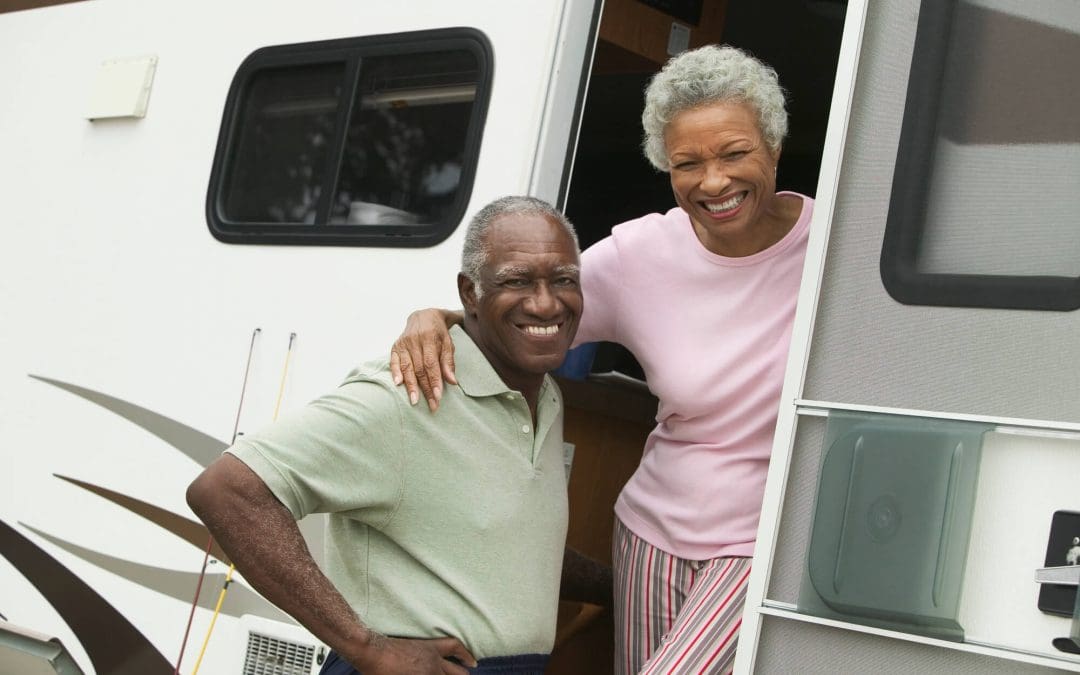Embarking on a journey in your RV is a thrilling experience that offers the freedom to explore the open road while enjoying the comforts of home. To ensure a smooth and enjoyable adventure, have some RV essentials on hand when you start your journey. From safety gear to kitchen supplies, here’s a comprehensive guide to the must-have items that every RV enthusiast should keep on board.
1. RV Essentials: Safety First
- Fire extinguishers: Place at least one fire extinguisher in an easily accessible location within your RV.
- First aid kit: A well-stocked first aid kit is essential for addressing minor injuries and ailments.
- Emergency roadside kit: Include items like reflective triangles, a flashlight, jumper cables, and basic tools.
2. Comfort and Convenience
- Bedding and linens: Pack comfortable bedding and sufficient linens for a cozy night’s sleep.
- Camping chairs: Outdoor relaxation is a must, so bring foldable camping chairs for lounging around the campsite.
- Portable grill: Enjoy outdoor cooking with a compact, portable grill for delicious meals under the stars.
- Outdoor rug: Create a designated outdoor space with a durable and easy-to-clean outdoor rug.
3. Kitchen RV Essentials
- Cookware and utensils: Equip your RV kitchen with pots, pans, utensils, and other essentials for preparing meals on the road.
- Compact appliances: Consider space-saving appliances like a compact coffee maker, toaster, and microwave.
- Non-perishable food items: Stock up on canned goods, pasta, and other non-perishable items to ensure you always have something to cook.
4. Water and Sanitation
- Water hoses and filters: Ensure a clean water supply by carrying hoses and filters for both fresh water and sewage disposal.
- Portable waste tank: A portable waste tank provides a convenient way to empty your RV’s holding tanks without having to move the entire vehicle.
- Biodegradable soap: Choose environmentally friendly cleaning products for dishes and personal hygiene.
5. RV Essentials for Connectivity
- Surge protector: Protect your RV’s electrical system from power surges at campsites by using a reliable surge protector.
- Extension cords: Carry extension cords of varying lengths to connect your RV to power sources.
- Portable power bank: Keep devices charged on the go with a portable power bank, especially useful during boondocking.
6. Maintenance and Tools
- Basic toolkit: A toolkit with essential tools like screwdrivers, pliers, and wrenches can be invaluable for small repairs.
- Tire pressure gauge: Regularly check and maintain proper tire pressure for a safer and more fuel-efficient journey.
- Lubricants and fluids: Keep a supply of essential fluids like oil, coolant, and lubricants for routine maintenance.
A well-prepared RV ensures a smoother and more enjoyable travel experience. By packing these essentials, you’ll be ready for whatever the road may bring, allowing you to focus on the adventure at hand. Whether you’re a seasoned RV enthusiast or a first-time traveler, having the right gear on board will contribute to a memorable and stress-free journey.
RV Travel FAQ
How can I stay connected while on the road?
Invest in a mobile hotspot or satellite internet for consistent connectivity. Research cell coverage along your route and consider offline navigation apps for areas with weak signals.
How do I plan a route for my RV journey?
Research and plan your route in advance, considering road conditions, RV-friendly campsites, and attractions along the way. Utilize GPS apps specifically designed for RV travel to avoid low-clearance bridges and narrow roads.
Are there any maintenance checks I should perform before hitting the road?
Regularly inspect your RV’s tires, brakes, fluids, and overall mechanical condition. Make sure your propane tanks are secure, and all systems (water, electricity, sewage) are in good working order.
How can I conserve water and energy while RVing?
Be mindful of water usage, fix any leaks promptly, and consider using eco-friendly products. Use energy-efficient appliances and turn off lights and electronics when not in use. Invest in solar panels or a generator for extended off-grid stays.
What should I do in case of an emergency breakdown?
Carry a roadside emergency kit with tools, flares, and a spare tire. Have contact information for roadside assistance and know the nearest repair shops along your route. Regularly check your RV’s insurance coverage for roadside assistance benefits.
USRV Inspector provides professional RV inspection services to RVers in areas all over the United States. Contact us to schedule an appointment.

